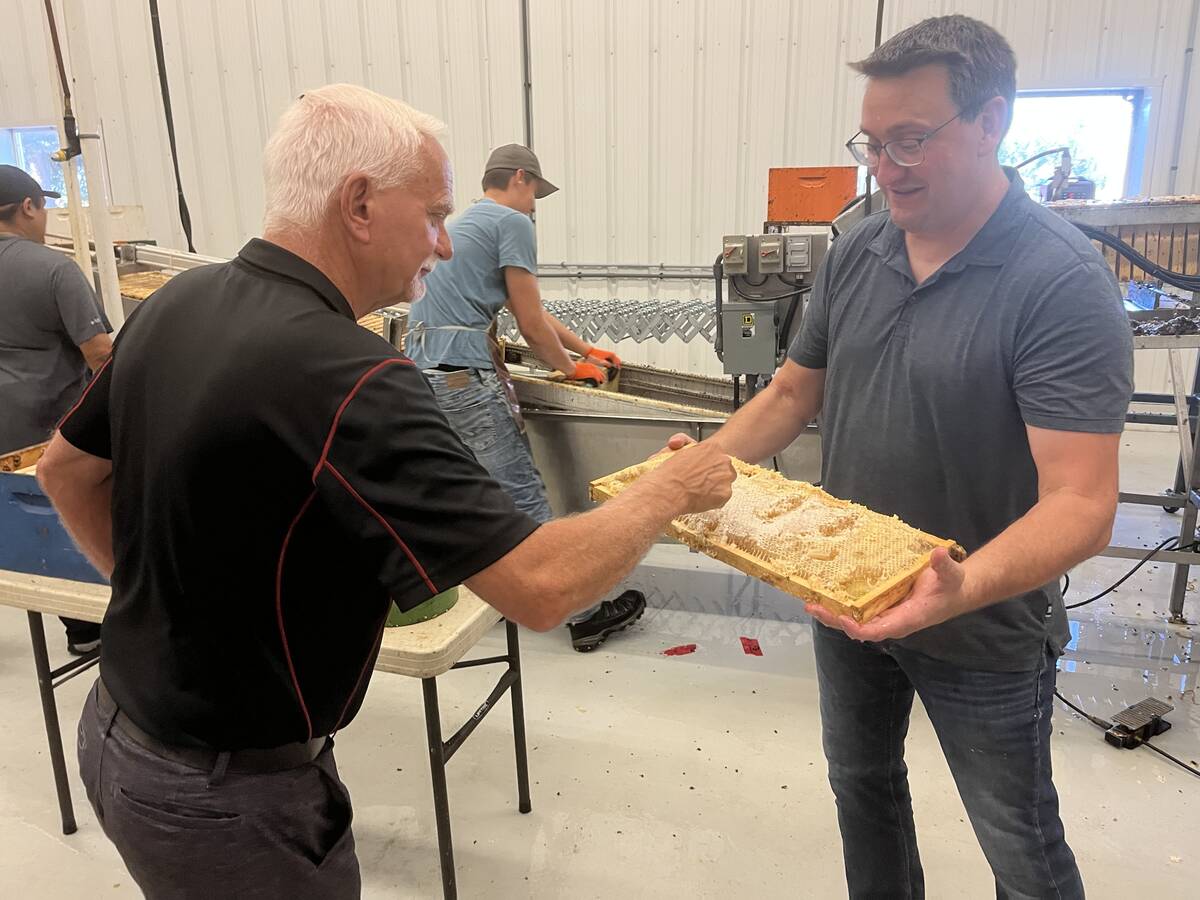Listening to a North American pop song sung in Spanish while people begged for food down an alley was the major contrast one youth saw while on a tour of Central America last month.
Erin Brown, a Grade 12 student from Melville, Sask., found that while city residents emulate the wealthier societies of the developed world, globalization has not totally taken hold in the rural areas.
Brown spent two weeks in Nicaragua and Honduras in February, visiting various projects including a housing program, a farmer co-operative and sweatshops.
Read Also

Alberta honey business ‘thrives’ despite bumpy beginnings
Thrive Honey showcases its honey production in market where Alberta produces 40 per cent of all honey produced in the country
The tour was organized by the Canadian Foodgrains Bank to see how Canadian purchases and lifestyles affect other economies and cultures. The bank noted that Canadians spend an average of 10 percent of their income on food, compared to 75 percent in countries that the tour visited.
Brown, an Australian living in Melville as part of a one-year exchange program, is no stranger to culture shock.
Her visit to Central America taught her that North Americans must leave their cultural values at home when organizing development projects in other countries.
She said she saw programs that didn’t work well because of northern expectations while projects that did work allowed local people to live in their culture. For example, a project dealing with abused women did not try to fix domestic violence but helped women earn money by making crafts.
Brown was also impressed with a program in a remote village where all residents came to a one-day seminar to learn how to farm better on their mountainside.
She has also toured northern Manitoba, where she found aboriginal communities living in similar conditions to those in Latin American villages but with less optimism for change.
“We overlook native culture” and try to impose our solutions on them, she said.
Brown said she talks to her friends about what she saw but said, “until they see poverty and people begging for food, they don’t understand it.”
















